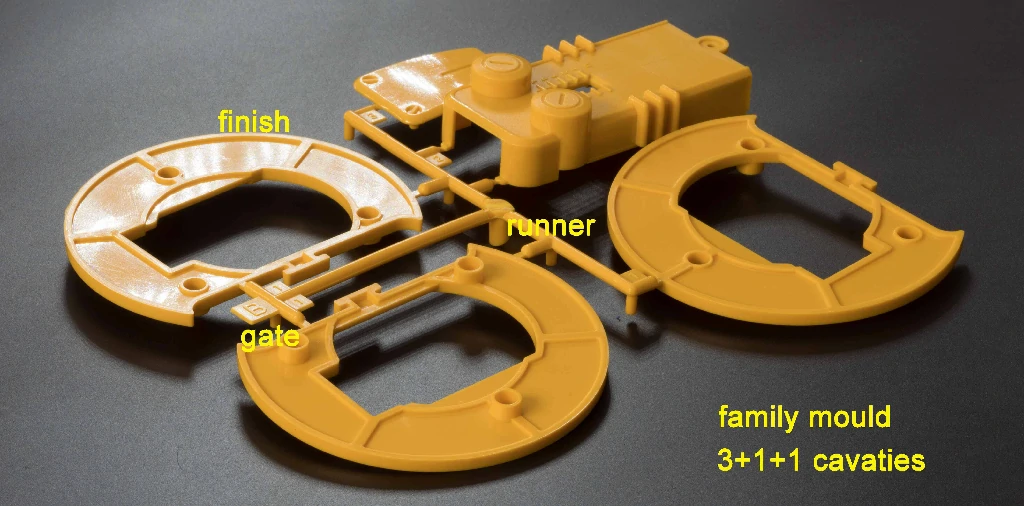Injection molding is one of the most prevalent manufacturing methods used for mass producing plastic parts and products at scale, and can produce intricate geometries with tight tolerances across industries.
Traditional injection molding processes rely heavily on skilled technicians’ experience for consistent high quality outputs while optimizing manufacturing equipment performance – this inherently results in variable yields, defect rates exceeding 20% and unexpected downtime, as well as sub-optimum efficiency levels.
Table of Contents
Artificial Intelligence (AI) and machine learning techniques are rapidly revolutionizing injection molding operations with two key advantages of AI: self-optimizing processes that self-optimize for maximum quality and efficiency metrics and self-learning AI that provides autonomous operation capabilities.
Automated in-line Defect Detection Strengthens Quality
To detect defects and nonconformances on injection molded parts, traditionally samples were randomly sampled for offline manual inspection to identify non-conformances; these subjective quality checks result in delayed feedback as they cannot pinpoint when or why defects appear.
Artificial Intelligence-powered visual inspection systems can automatically inspect all molded parts in-line. Computer vision algorithms trained on image datasets to detect and classify defects such as short shots, burn marks, flash, warpage or contamination quickly and in real-time for corrective actions to be immediately taken to avoid out-of-specification production.
Deep learning neural networks can also use sensor data from injection molding machines to map specific molding parameters to specific defects, making it possible to trace quality issues back to their source and develop data-driven insights that give operators power over process settings to prevent defects from reappearing in future parts.
Predictive Maintenance Averts Unplanned Downtime
Unexpected equipment failures can really put a wrench in things at injection molding plants. They lead to long downtimes and lost production. Preventive maintenance is scheduled based on rough guesses about how long the machines will last. It’s not based on real performance data.
With sensors showing up more and more on injection molding machines, AI models can analyze the data streams. This lets them accurately predict when parts will fail. By looking at things like temperature, pressure, vibration, and power use, early warning signs of trouble get detected. Maintenance can then get planned ahead of time before faults happen.
Some top AI solutions can even diagnose what’s causing the problem. They can recommend the best fixes too. This boosts troubleshooting skills. It minimizes the time needed to make repairs. Unplanned downtime is avoided, so injection molding keeps running smoothly.
Intelligent Process Controls Optimize Efficiency
Injection molding depends on many interlinked process settings. It’s tedious and tough to optimize them all manually for each job. AI opens up new ways to automate process optimization by harnessing data. Reinforcement learning algorithms can experiment with combos of molding settings.
They interface directly with the controllers. By repeatedly trying different settings and seeing the outcomes, the AI model learns autonomously. It figures out how to meet process goals like minimizing cycle times or material waste. AI process twins go even further. They mirror the performance of physical assets like molding machines virtually.
Various operating conditions can get simulated to predict the best configurations. The AI twin quickly outdoes manual trial-and-error. It minimizes wasted material and energy to boot
Driving Next-Generation Competitiveness with AI
As injection molding facilities face increasing demands to shorten cycle times, reduce costs, and enhance quality, AI is emerging as an appealing solution. Automated inspection, predictive maintenance and intelligent process control tools have proven invaluable: the benefits are transformational!
- Reduce defect rates up to 90% using non-stop inline monitoring;
- cut unplanned downtime by up to 50 percent via predictive maintenance;
- lower cycle times and material waste by 25%+ with AI process optimization;
Artificial Intelligence injection molding solutions augment human capabilities while constantly optimizing performance to deliver elevated quality, throughput, and efficiency.
Early adopters are seeing tremendous competitive advantages gained through AI adoption; AI injection molding is quickly moving from optional feature to essential necessity in operations striving for world-class manufacturing standards.
Implementing AI in Injection Molding Operations
An integrated approach is necessary in order to successfully revolutionize injection molding with AI:
Sensorization And Data Infrastructure
Artificial intelligence relies heavily on its data. Molding machines and auxiliary equipment must be fitted with sensors in order to collect enough process information needed for training AI models, with industrial IoT infrastructure securely intaking sensor data into analytics applications.
AI Software Platform
A central AI Software Platform runs AI models used for use cases like defect detection, predictive maintenance and process optimization. This flexible platform seamlessly integrates into existing molding equipment and enterprise systems for optimal use.
Change Management
As artificial intelligence transforms processes and roles within organizations, change management becomes paramount. Workers require training on using AI collaboratively while leaders should support an environment driven by data.
Ongoing Learning
Artificial intelligence systems evolve by constantly adapting. With each piece of new data accumulated, models retrained or fine-tuned incrementally improve over time to give an incremental upgrade to capabilities over time.
An integrated approach encompassing these elements allows injection molding organizations to rapidly implement AI pilot programs. Once their value has been demonstrated, larger scale adoption of this AI technology may result in step changes to quality, uptime and efficiency – giving early adopters a distinct competitive edge and making AI enabled injection molding an appealing investment option.
The injection molding industry is currently experiencing an incredible transformation through artificial intelligence adoption. AI solutions have reached maturity levels where they are capable of creating significant value in terms of cost savings, quality improvements, and productivity gains.
Implementing automated inspection, predictive maintenance and intelligent process controls allows injection molding organizations to achieve new heights of manufacturing excellence. Artificial intelligence and injection molding offer great potential to advance industry efficiency, competitiveness and data collection.
Forward thinking leaders who recognize AI’s promise now may reap huge returns as intelligent injection molding paves way for next-gen plastic product manufacturing.
